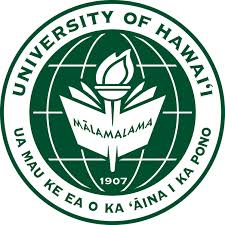TSR-022 (Anti-TIM-3 Antibody) and TSR-042 (Anti-PD-1 Antibody) in Patients With Liver Cancer
| Status: | Not yet recruiting |
|---|---|
| Conditions: | Liver Cancer, Cancer, Cancer, Cancer, Cancer |
| Therapuetic Areas: | Oncology |
| Healthy: | No |
| Age Range: | 18 - Any |
| Updated: | 9/23/2018 |
| Start Date: | October 2018 |
| End Date: | October 2022 |
| Contact: | Jared D Acoba, MD |
| Email: | jacoba@hawaii.edu |
| Phone: | 8085318521 |
Phase II Study of TSR-022 in Combination With TSR-042 for the Treatment of Advanced Hepatocellular Carcinoma
TSR-022 and TSR-042 may stop the growth of tumor cells by allowing the immune system to
attack the cancer. This phase II trial is studying how well TSR-022 and TSR-044 work in
combination in treating patients with locally advanced or metastatic liver cancer.
attack the cancer. This phase II trial is studying how well TSR-022 and TSR-044 work in
combination in treating patients with locally advanced or metastatic liver cancer.
PRIMARY OBJECTIVES:
I. To assess the objective response rate (ORR) as determined by RECIST v1.1 of advanced
hepatocellular cancer (HCC) patients treated with TSR-022 and TSR-042.
SECONDARY OBJECTIVES:
I. To determine the ORR as determined by the immune related Response Criteria (irRC),
duration of response (DOR), time to progression (TTP), progression free survival (PFS),
overall survival (OS), and alpha-fetoprotein (AFP) response of study participants.
II. To evaluate the safety profile of treated patients.
OUTLINE:
Patients receive TSR-022 and TSR-042 on day 1. Courses repeat every 21 days in the absence of
disease progression or unacceptable toxicity.
Patients are followed every 9 weeks.
I. To assess the objective response rate (ORR) as determined by RECIST v1.1 of advanced
hepatocellular cancer (HCC) patients treated with TSR-022 and TSR-042.
SECONDARY OBJECTIVES:
I. To determine the ORR as determined by the immune related Response Criteria (irRC),
duration of response (DOR), time to progression (TTP), progression free survival (PFS),
overall survival (OS), and alpha-fetoprotein (AFP) response of study participants.
II. To evaluate the safety profile of treated patients.
OUTLINE:
Patients receive TSR-022 and TSR-042 on day 1. Courses repeat every 21 days in the absence of
disease progression or unacceptable toxicity.
Patients are followed every 9 weeks.
Inclusion Criteria:
- Histologically or cytologically confirmed hepatocellular cancer
- Barcelona Clinic Liver Cancer Stage B or C
- Cirrhosis grade of Child-Pugh class A or B7
- Subjects with HBV infection are required to be receiving effective antiviral therapy
and have a viral load less than 100 IU/mL. Antiviral therapy is not required for
subjects with HCV infection
- Have at least one tumor lesion that can be accurately measured according to Response
Evaluation Criteria in Solid Tumor (RECIST v1.1)
- No prior systemic therapy for HCC
- Age ≥ 18 years
- ECOG performance status 0-1
- Resolved acute effects of any prior therapy to baseline or Grade ≤1 NCI CTCAE
- Have adequate hematologic and renal function
- Prior local therapy, such as surgery, radioembolization, chemoembolization, or
radiofrequency ablation is allowed if the index lesion(s) remains outside of the
treatment field or has progressed since prior treatment
- Participant must be able to understand the study procedures and agree to participate
in the study by providing written informed consent.
Exclusion Criteria:
- Participant must not be simultaneously enrolled in any interventional clinical trial
- Participant must not have had major surgery ≤ 3 weeks prior to initiating protocol
therapy and participant must have recovered from any surgical effects
- Participants must not have received investigational therapy ≤4 weeks, or within a time
interval less than at least 5 half-lives of the investigational agent, whichever is
shorter, prior to initiating protocol therapy.
- Active or untreated central nervous system (CNS) and leptomeningeal metastases are
excluded
- Prior therapy with any medication targeting PD-1, PD-L1, or TIM-3
- Participant must not have a known hypersensitivity to TSR-042 and TSR-022 components
or excipients.
- Participants with active malignancy (other than HCC) or a prior malignancy within the
past 2 years are excluded. Participants with completely resected cutaneous melanoma
(early stage), basal cell carcinoma, cutaneous squamous cell carcinoma, cervical
carcinoma in-situ, breast carcinoma in-situ, and localized prostate cancer are
eligible
- Participant must not have serious, uncontrolled medical disorder, or nonmalignant
systemic disease. Examples include, but are not limited to uncontrolled ventricular
arrhythmia, uncontrolled major seizure disorder, unstable spinal cord compression, or
superior vena cava syndrome.
- Known history of Human Immunodeficiency Virus (HIV) infection
- Participant has an active autoimmune disease that has required systemic treatment in
the past 2 years (.ie., with use of disease-modifying agents, corticosteroids, or
immunosuppressive drugs). Replacement therapy (e.g., thyroxine, insulin, or
physiologic corticosteroid replacement therapy for adrenal or pituitary insufficiency,
etc.) is not considered a form of systemic treatment.
- History of idiopathic pulmonary fibrosis, interstitial lung disease, bronchial asthma,
organizing pneumonia, bronchiolitis obliterans, drug-induced pneumonitis, or
idiopathic pneumonitis
- History of organ transplantation including allogeneic bone marrow transplantation
- Participant has a diagnosis of immunodeficiency or has receiving systemic steroid
therapy or any other form of immunosuppressive therapy within 7 days prior to
initiating protocol therapy.
- Psychiatric illness/social situations that would limit compliance with study
requirements
- Pregnant, lactating, breastfeeding, or intending to become pregnant during the study
and for 180 days after the study
We found this trial at
1
site
Univ of Hawaii Honolulu Community College is an integral part of the University of Hawai?i,...
Click here to add this to my saved trials
